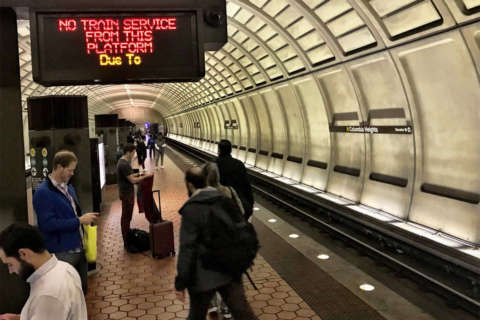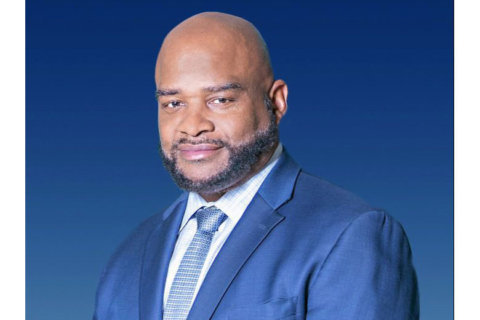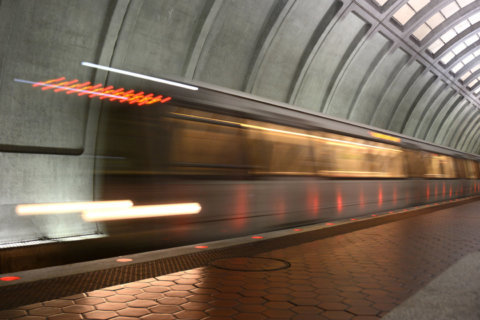Metro would continue to get a critical $150 million per year in special federal funding under President Trump’s budget proposal unveiled Monday, even as the budget proposes cuts to transportation spending in many other areas.
The $150 million per year is critical to Metro’s long-term capital maintenance, repair and upgrade plans, but is set to expire Sept. 30 after a decade of the special payments.
In past years, some Republicans had targeted the Metro funding for cuts before it was finally approved, so it is significant that the funding is included in the president’s budget outline posted by the U.S. Department of Transportation.
The president’s budget proposal is often largely symbolic but it lays down a marker ahead of Congressional consideration of budget bills.
Maryland, the District and Virginia match the $150 million from the federal government with $50 million each. Without the federal funding, Metro said local taxpayers would have had to pay even more in coming years to keep capital projects on track on top of new dedicated funding.
Overall, the president’s federal fiscal year 2020 budget proposes cuts of some degree in most areas of transportation, which would lead to an overall decrease in discretionary budget authority of 22 percent, or $5.9 billion, compared to the current year’s estimate.
“The 2020 Budget continues certain important transportation infrastructure investments, but in a way that also recognizes that the Federal Government is not — and should not be — the primary funder of the Nation’s transportation systems,” the initial budget proposal said.
Some of the most significant cuts proposed are to federal highway infrastructure programs, Amtrak service and transit construction. The administration proposes adding $1 billion to a competitive grant program and creating a $300 million competitive bridge replacement program.
For Amtrak, the administration proposes cutting long distance routes through more rural areas, and possibly running buses instead.
A White House policy paper released alongside the budget plan also calls for a new multiyear transportation funding bill to replace the current “FAST Act” of 2015 that expires in about a year and a half. Such a bill, the White House suggested, could include tax changes or increases, tolling or other changes to support the faltering Highway Trust Fund.
For grant programs, the administration highlighted as a success the grants that helped launch toll lanes in Georgia.
The budget does include other more general infrastructure funding, including an undefined $200 billion placeholder for “other infrastructure priorities” like water systems, 5G cell service and artificial intelligence.
The president is again proposing selling the Army Corps of Engineers’ Washington Aqueduct that provides water to the District, Arlington, Falls Church and parts of Fairfax County. The proposal would see the system sold to a private company or to a state or local government, which the administration said would be more efficient.
There are similar proposals to sell off other government-owned or operated infrastructure elsewhere in the country, including low-cost power systems on the west coast.
Still, the budget projects a $1.1 trillion deficit in the 2020 budget year, even if optimistic growth projections hold true.








